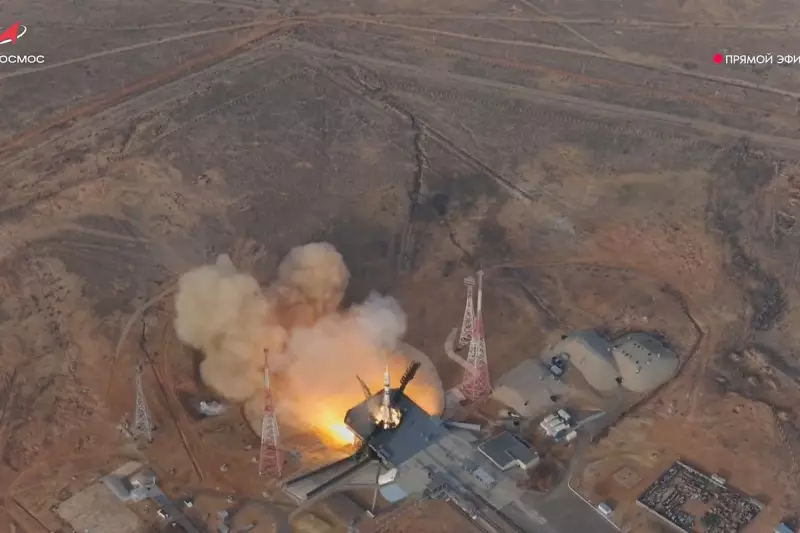
A rocket launch at Russia's primary space facility has caused significant damage, leaving the nation without the ability to send astronauts into orbit for the first time in over six decades.
Launch Incident Causes Major Infrastructure Damage
On Thursday, a routine mission from the Baikonur Cosmodrome in Kazakhstan went awry when the rocket's powerful blast caused substantial damage to the launch infrastructure. Despite the incident on the ground, the Soyuz MS-28 spacecraft successfully reached orbit with its three-person crew of cosmonauts, who have since docked safely with the International Space Station.
Russia's space agency, Roscosmos, confirmed that sections of the launchpad collapsed into an exhaust trench beneath it due to the immense force of the launch. An official assessment of the full extent of the damage is currently underway.
Historical Context and Immediate Consequences
This incident marks a pivotal moment in space history. It is the first time since 1961 that Russia has lost its independent capacity to launch humans into space. The Baikonur Cosmodrome is Russia's sole operational launch site for crewed missions, making this a critical blow to its space ambitions.
The site, which requires extensive and likely time-consuming repairs, is central to Russia's space operations. The damage occurred on Thursday 27 November 2025, with the news being widely reported the following day.
Long-Term Implications for Russia's Space Ambitions
Space analysts have expressed serious concerns about the timeline for repairs, noting that critical components of the launch infrastructure were destroyed. This setback could have a profound impact on the future of Russia's space programme.
Of particular concern are the potential delays to Russia's plans for an independent orbital station. With its primary launch site out of action indefinitely, the nation's ability to construct and supply a new station is now in question. This incident underscores the vulnerabilities of relying on a single, ageing launch facility for human spaceflight.





